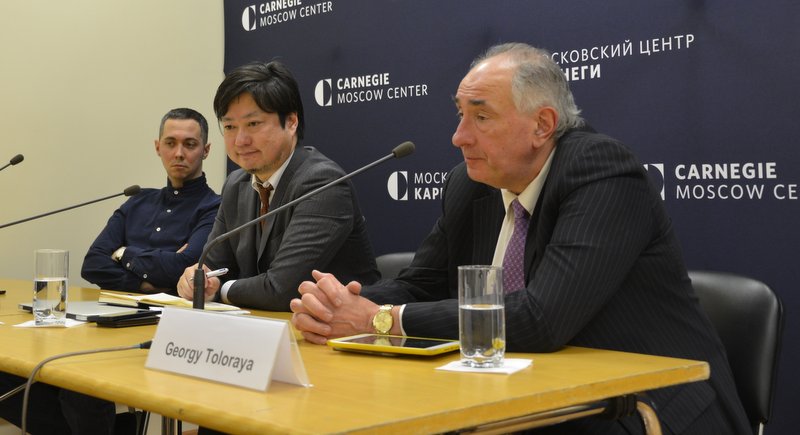Registration
You will receive an email confirming your registration.
These challenges originating on the Korean Peninsula may be the first major international security crisis that the new U.S. administration will have to manage. Pyongyang’s provocative behavior creates pressing security threats to the U.S.-Japan-ROK alliance, while China and Russia view American moves to address these challenges, such as deployment of missile defense systems in the region, as similarly disruptive. Escalation of tensions in Northeast Asia is happening amid a perfect storm: a deepening political crisis in the Republic of Korea, a disruptive transition in the United States, preparations for the 19th Party Congress in China. These challenging issues may set the tone for Russia’s Asia policy for 2017, including deepening dialogue between Moscow and Tokyo.
Associate professor at Keio University and leading expert on Japanese security in Asia, Ken Jimbo discussed these issues with Georgy Toloraya, executive director of the National Committee on BRICS Studies in Russia, and Alexander Gabuev, Chair of the “Russia in the Asia-Pacific” program.
Ken Jimbo is an associate professor at Keio University.
Georgy Toloraya is an executive director of the National Committee on BRICS Studies in Russia.
Alexander Gabuev is a senior associate and the chair of the Russia in the Asia-Pacific Program at the Carnegie Moscow Center.
